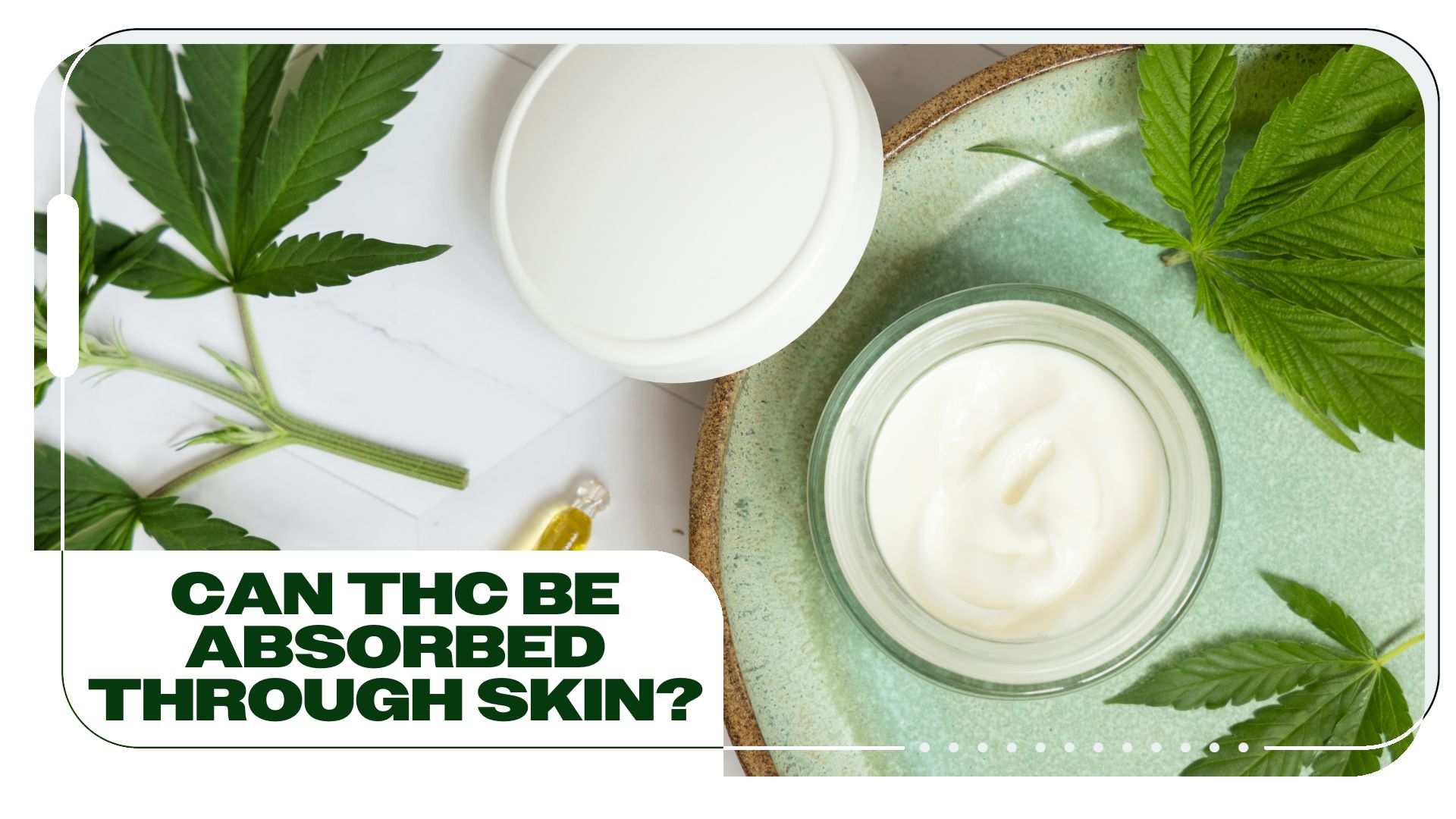For those who suffer from muscle pain, chronic pain, or joint pain, cannabis topicals can be a game-changer — but how exactly do they work?
Let’s explore whether it’s possible for THC in any of its forms to be absorbed through the skin, and if THC topicals can be detected on drug tests.
Top Ways to Consume THC
There are limited ways for THC to enter your system. Cannabinoids like delta-9-tetrahydrocannabinol (THC), cannabidiol (CBD), and cannabinol (CBN) are processed by the body’s endocannabinoid system (ECS), interacting with cannabinoid receptors.
We also now know that there are many other receptors and molecules involved that are part of what’s called “the endocannabinoidome” (eCBome), which includes lesser-known endocannabinoid-like molecules (PEA, etc.) and their target receptors like dopamine, PPAR, TRP, and serotonin receptors to enhance their effects.
THC has pain-relieving (analgesic) properties and produces the intoxicating, psychoactive effects often associated with cannabis consumption. It’s also the culprit behind some of the negative, dose-dependent side effects of cannabis, such as paranoia.
Meanwhile, CBD is known for its relaxing effects, anti-anxiety and antidepressant actions, anti-inflammatory properties, and for being a powerful antioxidant. CBD works without causing a high as THC does.
The bioavailability (i.e., ability to be absorbed into the body) of cannabis can vary greatly depending on the different delivery methods used. Let’s briefly explore some common consumption methods and how they affect the bioavailability of cannabinoids like THC.
- Inhalation (Smoking and Vaping): Inhalation includes vaping or dabbing concentrates and smoking or vaping dried cannabis flower. Inhalation provides the fastest symptom relief for medical cannabis patients due to how rapidly cannabis smoke and vapor are absorbed into the body. THC bioavailability is up to 35% for inhalation, while inhaled CBD is around 31%.
- Eating: Eating cannabis products such as edibles (infused food and drinks) and capsules is also popular. It takes longer for the effects of the product to set in since it is processed through digestion and not absorbed directly into the bloodstream like it is when inhaled. Oral bioavailability ranges from 10 to 20% for THC and 6 to 19% for CBD, notably lower than smoking.
- Sublingual: Taking cannabis products such as sublingual tinctures can be an effective medicating method. Regarding bioavailability, sublingual intake of cannabinoids is somewhere between edible and inhalation because they utilize similar mucous membranes for absorption into the bloodstream. The onset is markedly faster than other oral methods of consumption.
What Are Cannabis Topicals and Why Do People Use Them?
Topical cannabis products are administered directly and absorbed through the skin. Topical products include transdermal patches, lotions, salves, creams, balms, and ointments. Different formulations of cannabis topical products may contain different spectrums, or combinations of terpenes and cannabinoids naturally present in the cannabis plant.
The topical application of cannabis products involves rubbing or massaging the product directly onto the skin, usually where the user hopes to gain relief. Medical cannabis patients may use topical products to relieve muscle and joint pain, as well as various skin conditions, including eczema, psoriasis, and epidermolysis bullosa.
When it comes to topical cannabis products, they are not well absorbed into the rest of the body beyond the application site. This means they are not well “systemically” absorbed into the rest of the body, and won’t cause a high even if THC is in the topical ointment. However, there aren’t any human studies to estimate topicals’ average bioavailability.
Can THC Be Absorbed Through the Skin?
There are no human-based studies on the bioavailability of cannabinoids through a topical or transdermal application. However, preclinical animal studies are promising.
Why You Should Get Your Medical Marijuana Card
Veriheal has satisfied millions of patients nationwide by giving them access to these benefits
- Larger purchase limits
- Peace of mind
- Enhanced legal protection
- Access to higher potency strains
- Save up to 25% on cannabis purchases
- Skip the line at the dispensary
These application methods avoid a first-pass metabolism effect and provide local relief without entering the bloodstream since they are absorbed through the skin directly to dermal cannabinoid, pain, and anti-inflammatory receptors. Because of this limited but current information at hand, topical THC is not likely to cause a high due to negligible systemic absorption.
A topical dilemma scientists are working on is that we know cannabinoids like CBD could use extra help getting through the skin. That’s why new topical formulations including microemulsions and nanotechnology are being developed to enhance the delivery of cannabinoids into the deeper layers of the skin.
Can THC Topicals Show Up on a Drug Test?
If you’re worried about THC topicals appearing on drug tests, we have good news! According to the available research, the topical application of THC products cannot lead to a positive cannabinoid finding in blood or urine.
Of course, these results cannot be guaranteed for everyone since they are not available on a massive scale, but they are promising so far.
Final Thoughts
While research on the bioavailability of cannabinoids through topical and transdermal application is still sparse, existing information suggests that THC and CBD topicals can potentially provide relief for localized pain and skin conditions without putting the user at risk of failing a drug test.
Are you interested in using cannabis topicals to treat a condition? Talk to an MMJ doctor today to determine if medical cannabis is right for you.
Frequently Asked Questions
How long does it take for THC topicals to work?
Generally, it is expected that the effects of a topical will be felt within 10-30 minutes of application. Levels may peak around 1.4 hours and may be sustained for 48–72 hours depending on the exact application type.
Is THC topical better than CBD?
Whether THC or CBD topicals are best for you depends on the legal status of both where you live and what kind of relief you are looking for. However, when it comes to bioavailability through the skin, more research needs to be done to ascertain the efficacy of THC topicals, whereas CBD topicals are more frequently applied for being widely and legally available for alleviating things like muscle pain.
Will my CBD or THC-based option show up on a drug test?
According to available research, it has been indicated that THC topical cannabis products don’t lead to a positive cannabinoid finding in blood or urine. However, there isn’t a large enough data set to be 100% sure yet for everyone.
How do topical cannabis products work?
Topical cannabis products provide local relief without entering the main bloodstream since they are absorbed through the skin directly. They act on dermal cannabinoids, pain, and other sensory and anti-inflammatory receptors.
This article was first published in March 2023 by Olivia Swann and updated in November 2024.
Author, Share & Comments








